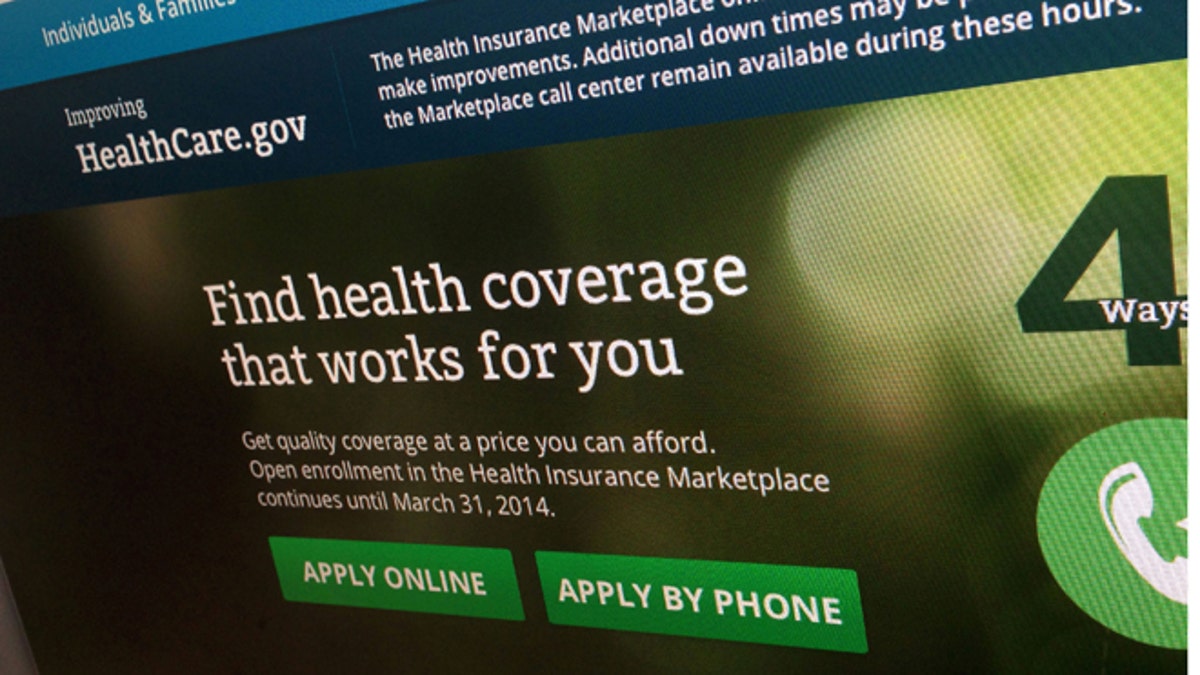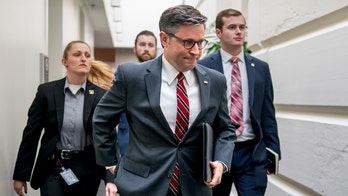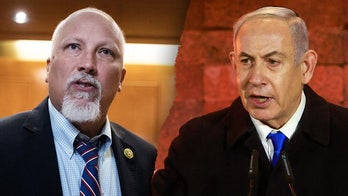
Nov. 29, 2013: Shows a part of the HealthCare.gov website, photographed in Washington.
Following a string of setbacks, the Obama administration reportedly is considering yet another extension of existing individual health insurance policies in an effort to smooth the transition to the federal exchanges under the Affordable Care Act.
Aetna Inc. Chairman and CEO Mark Bertolini told analysts during a conference call he heard the plans could be extended. So did Avalere Health CEO Dan Mendelson.
Meldelson said the Obama administration may decide to let policyholders keep their coverage for an additional three years but refused to confirm if a decision had already been made on the subject.
Avalere Health is a market analysis firm, but Mendelson said his company was not advising the administration on exchange policy. He said he has had informal discussions with administration officials about the extension, but he didn't identify them.
Joanne Peters, a spokeswoman for the Department of Health and Human Services, said the administration was “continuing to examine all sorts of ways to provide consumers with more choices and to smooth the transition as we implement the law.”
Aetna Chief Financial Officer Shawn Guertin said in an interview after the call that there have been discussions about whether the plans should be extended again, but he didn't have any more details.
Individual policyholders were hit with a wave of cancellation notices last year because their coverage was less robust than what is required under the law, and many states allowed insurance companies to simply cancel them
This became one of the most politically explosive issues in the transition to a new health insurance system under Obama's law. An estimated 14 million people were already buying their own individual insurance policies. Many of them are self-employed business owners, others are early retirees, and some are in transition between jobs.
The wave of cancellation notices — at least 4.7 million of them — hit just when the new HealthCare.gov website was experiencing some of its worst technical problems, and it undercut the president's well-publicized promise that if you liked your plan you could keep it.
The law included a complicated scheme called "grandfathering" to try to deliver on Obama's pledge. It was intended to shield policies in force at the time the law passed from many new requirements, provided the policies themselves changed little. But insurers considered it impractical. And many of the canceled individual policies would not have been eligible for relief anyway, since they were purchased after the law's passage.
The predicament of millions of Americans with canceled policies unable to get new ones because of a dysfunctional government website put the administration in an even more uncomfortable position.
At first the White House went into damage-control mode, arguing that many of the cancelled plans were "junk" insurance and consumers would be better off with the broader coverage available through the health care law's new insurance markets.
But soon Obama was forced to reverse course, urging insurers and state regulators to allow policyholders to keep their existing plans for an additional year. Most states complied with the request.
Now the administration is considering adding more years to this extension to avoid another wave of problems if rates on the exchange climb too high and people are left without an affordable coverage option. Health insurers are supposed to submit by May the rates they want to charge on the exchanges next year.
The Associated Press contributed to this report.




